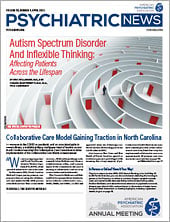Evidence is mounting to suggest a link between epilepsy and Parkinson’s disease. For example, early last year, researchers in the United Kingdom found that people who have epilepsy are 2.5 times more likely to be diagnosed with Parkinson’s disease than the general population. Now a study conducted by several of the same researchers suggests that taking certain antiepileptic medications may be a reason for the increased risk. The findings were published in JAMA Neurology.
Daniel Belete, M.B.Ch.B., a research fellow at the Queen Mary University of London Preventive Neurology Unit, and colleagues examined data from 1,433 adults with a diagnosis of Parkinson’s disease and 8,598 people without a diagnosis of Parkinson’s disease (the control group) in the U.K. Biobank, which began collecting data in 2006. Individuals in the control group were assigned an index date set to the date of diagnosis of their matched patient with Parkinson’s disease. The researchers then analyzed prescription data among all individuals for four common antiepileptic medications: carbamazepine, lamotrigine, levetiracetam, and sodium valproate.
Overall, 4.3% of people with a Parkinson’s disease diagnosis had a prescription for an antiepileptic medication before their diagnosis, compared with the 2.5% of people in the control group who were prescribed an antiepileptic medication before their index date. In addition, 4.4% of people with a Parkinson’s disease diagnosis had epilepsy compared with 1% of people in the control group.
People who were prescribed any antiepileptic medication had 1.8 times the odds of having a Parkinson’s disease diagnosis compared with people who had not received a prescription for an antiepileptic medication. Those who received a prescription for carbamazepine, lamotrigine, levetiracetam, and sodium valproate had 1.43, 2.83, 3.02, and 3.82 times the odds of having a Parkinson’s disease diagnosis, respectively, compared with those who were not prescribed an antiepileptic medication. Furthermore, the odds of a Parkinson’s disease diagnosis increased with the number of different antiepileptic medications a person had taken and the number of prescriptions a person had received for each drug.
Belete told Psychiatric News that the results were not a complete surprise.
“Antiepileptic drugs have been implicated in a range of movement disorders, including drug-induced parkinsonism,” Belete explained. “In addition to this, small studies have shown that certain antiepileptic drugs can interfere with dopamine pathways and potentially unmask individuals with subclinical Parkinson’s disease. However, the biological pathways that explain this relationship require further research.”
Belete added that it is too early to make any clinical recommendations based on the study’s results.
“It is important to remember that this is the first study to look at the relationship between a range of commonly prescribed antiepileptic drugs and Parkinson’s disease. Further work is needed to validate our findings.”
This study was supported in part by Barts Charity and Queen Mary University of London. The previous study was supported in part by Barts Charity, Health Data Research UK, and the National Institute for Health Research UCLH Biomedical Research Centre. ■

